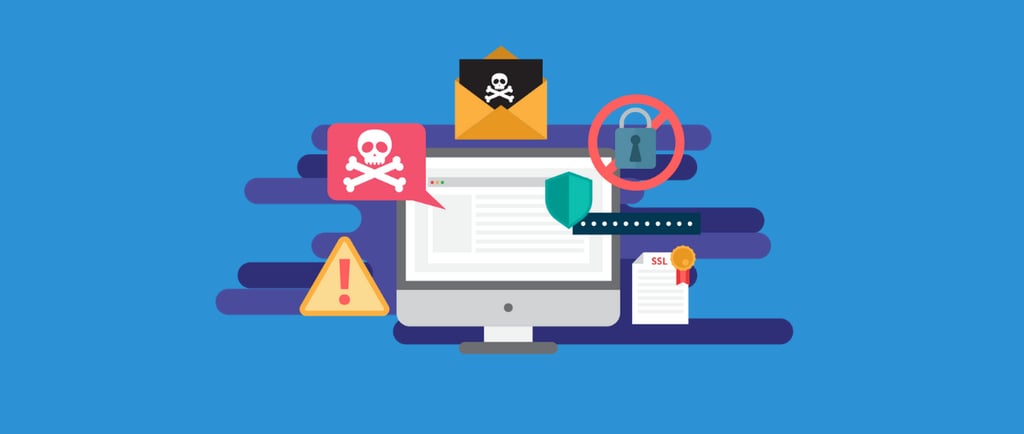Data Privacy and Leakage: Safeguarding Sensitive Information
PRIVACY AND REGULATION


In today's digital age, data is the lifeblood of businesses and individuals alike. From personal emails to financial records and healthcare information, our lives are increasingly intertwined with the digital realm. While this interconnectedness offers numerous conveniences, it also raises pressing concerns about data privacy and leakage.
The Significance of Data Privacy
Data privacy refers to the protection of personal and sensitive information from unauthorized access, use, or disclosure. It's a fundamental right that individuals and organizations should cherish. Here's why data privacy matters:
Personal Security: Personal data, such as social security numbers and medical records, can be exploited by malicious actors for identity theft, fraud, or even extortion.
Trust and Reputation: Individuals and customers trust organizations to safeguard their data. Data breaches erode this trust, tarnishing a company's reputation and potentially leading to legal consequences.
Legal and Regulatory Compliance: Many countries have enacted data protection laws (e.g., GDPR in Europe, CCPA in California) that require organizations to secure and protect personal data. Failure to comply can result in hefty fines.
Data Leakage: A Growing Concern
Data leakage, also known as data breaches or data spills, occurs when sensitive information is exposed to unauthorized parties. This can happen in various ways, including:
Cyberattacks: Hackers may breach security systems to access and steal data. Notable examples include the Equifax breach and the Yahoo data breach.
Insider Threats: Sometimes, data leakage occurs from within an organization, often unintentionally. An employee might send sensitive information to the wrong recipient or inadvertently expose it.
Third-Party Vulnerabilities: Data may be compromised when entrusted to third-party service providers. If these providers have weak security measures, they become points of vulnerability.
Real-World Implications
Data breaches can have severe real-world implications:
Financial Loss: The direct costs of data breaches, including legal fees and regulatory fines, can be staggering. Indirect costs, such as damage to reputation and customer trust, can be even more detrimental.
Identity Theft: Stolen personal information can lead to identity theft, causing financial and emotional distress to victims.
National Security: In some cases, data breaches can compromise national security, especially if they involve sensitive government or military data.
Safeguarding Data Privacy
Protecting data privacy and preventing data leakage are responsibilities shared by individuals, organizations, and governments. Here are crucial steps:
Encryption: Use strong encryption methods to protect data both in transit and at rest. This ensures that even if data is intercepted, it remains unreadable.
Access Control: Implement strict access controls, ensuring that only authorized personnel have access to sensitive information.
Security Awareness: Train employees and individuals on best practices for data security and privacy. This includes recognizing phishing attempts and using strong, unique passwords.
Data Minimization: Collect and store only the data that is necessary for your operations. The less data you have, the less there is to protect.
Regular Audits: Conduct regular security audits and vulnerability assessments to identify and address weaknesses.
Data Protection Regulations: Familiarize yourself with and comply with data protection regulations that apply to your organization. This includes GDPR, CCPA, and HIPAA, among others.
Incident Response Plan: Develop a robust incident response plan to handle data breaches swiftly and effectively. This includes notifying affected individuals and authorities as required by law.
The Road Ahead
As technology continues to advance, so do the threats to data privacy. Emerging technologies like artificial intelligence and the Internet of Things (IoT) create new avenues for data leakage. However, they also offer opportunities for more robust security measures.
In the future, we can expect to see even more stringent data protection regulations, increased investments in cybersecurity, and a growing emphasis on privacy by design, where data privacy is considered at every stage of technology development.
Conclusion
Data privacy and leakage are pressing concerns in our increasingly digital world. Safeguarding sensitive information is not only a legal and ethical responsibility but also critical for protecting individuals and organizations from financial and reputational damage. By adopting strong security measures, raising awareness, and staying vigilant, we can navigate the digital landscape while preserving our data privacy.
